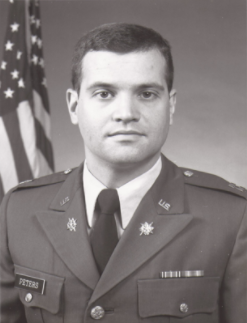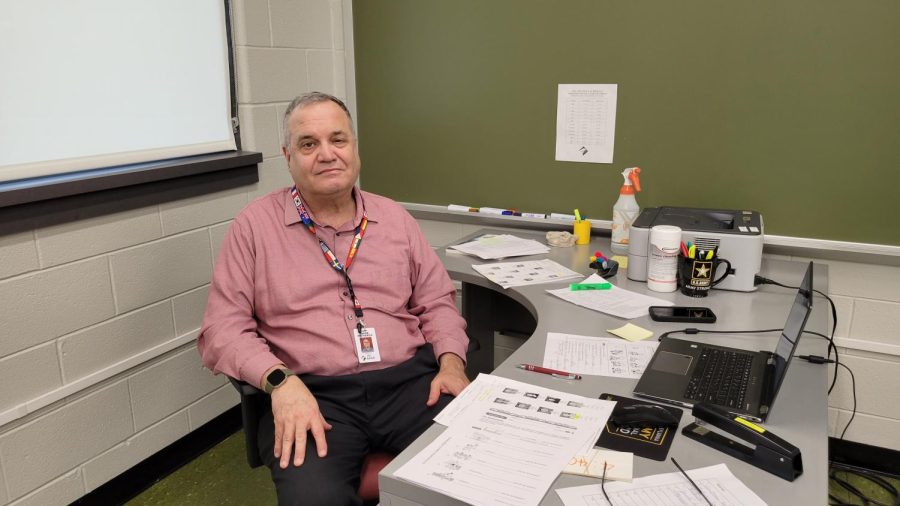Dr. Mark Petrarca

Name
Mark Petrarca
What was your highest rank?
Captain
Which branch were you in?
Army Intelligence Service.
What Military Occupation Specialty did you have?
Well, I had two jobs. My first job was an Intelligence Analyst for the National Security Agency, which required a top-secret clearance. I did one year in the Eastern European branch, and I did two years in the Central American branch. I can’t go into any more detail than that. My second job, I was a Tactical Intelligence Officer. I was assigned to a tank battalion in Germany during the Cold War.
I had two jobs in the barracks, my job was the security of a 60 acre military installation, which included a 60 man guard force that ran 24 hours a day. Along with protecting a $7 million ammunition holding area in the Tennenlohe forest. That also included the security of the weapons and ammunition on the base. We also dealt with clearance issues at the gate. If we had foreigners that showed up from a Warsaw Pact country, then we had to take them to interrogate them.
In the field, my job was the reconnaissance planning for the tank battalion, and then eventually I got promoted to brigade s2. So I did basically the same thing but just at a higher level; instead of planning for one battalion, I planned for four battalions. But we would send out the scout platoons and coordinate reconnaissance assets from divisions and corps and we practiced that, like what happened in Ukraine recently. But that’s the kind of thing we were planning against: in case the Russians came across the border, so we had a defense set up. We knew where they were and what they were doing so we could counter their attack
How long did you serve?
I served almost eight years
How long ago did you serve?
I served from 1982 to 1989
How did you end up becoming a teacher after serving? Was that your initial plan after serving or did it change?
It’s an interesting question. When I was in high school, I was always interested in language. I was also involved in the Navy Sea Cadet Corp, which is kind of like junior Reserve Officer Training Corps (ROTC). I went to boot camp at Orlando, Florida, I went to submarine school in Grove, Connecticut, I was on exchange with the Royal Canadian Navy in Halifax, Nova Scotia. But this wasn’t really the service, it was like junior ROTC. But that experience helped me get a scholarship. I was going to join the Navy, because my father was in the Navy in WWII and the Korean war. And all my uncles served in WWII. So I was going to join the Navy like my father because I admired my father and wanted to be like him. My father was a navy medic. And my mother told me, ‘if you’re going to go into the service, fine.’ She wasn’t keen on it because Vietnam had just ended a few years earlier. I had a couple cousins that served in Vietnam, and some of them came back pretty messed up. She said, ‘if you’re planning on going into the service, apply for ROTC, at least get your education going as an officer.’ And that’s what I did. And since I already had that quasi military experience in high school, that got me an ROTC scholarship. The army doesn’t care what you major in, just get a degree. So I majored in Spanish, but I didn’t major in teaching. And when I got out of the army, there’s only two things you could do with a language degree, you could either teach or translate. I like working with people, so I decided to teach. Initially that wasn’t the plan, I didn’t really have a plan.
Is there anything you remember about your time in the service?
Basically, when we were in Germany, it was the middle of the Cold War. So we were always thinking the Russians were going to cross the border. I remember one time, we were patrolling the border near Czechoslovakia; we replaced the Second Armored Cavalry Regiment. For some reason, we had to swap out with them to take over the patrol of this border. We don’t normally do that, but it was like a one week mission. I remember looking through the binoculars across the border and seeing the guard towers and the Eastern border guards. And they’re looking back at us with binoculars. I remember them training their attack dogs. So they had people that would wear padded suits and pretend they were escaping, and then they would sic the dogs on them. And I saw that through the binoculars. My mother’s side of the family, they were in Poland, because that’s where my mother’s parents came from. I was looking through there wondering what it must be like on the other side of the Iron Curtain.
Where are some of the places you’ve been?
I did the officer basic Fort Huachuca; that’s for the military intelligence officer school. Then I went to signal and intelligence school in Fort Devens, Massachusetts. Then I served at Fort Meade in Maryland; that’s where the national security agency is located. I was with the intelligence and security command. And then, I went to the officer advanced course, back in Fort Huachuca. And then I was stationed in Erlangen barracks in Germany with the First Armored Division.
What does being in the military mean to you?
It’s giving back to your country, that has given so much to you. I think about Kennedy’s speech, ‘Ask not what your country can do for you – ask what you can do for your country,’
Any tips for students going into basic training?
I don’t regret any of my service time. It was never my intention to make a career of it. I come from a family of seven children, and if it hadn’t been for the army, I would have never been able to get through college. It was a very good experience because there are things in the service that you can’t learn from books. You learn a lot of good qualities, like how to work with people and how to be organized. Listening is an important skill if you’re going to go into the army, and learn as much as you can. There are a lot of opportunities to take advantage of. Take advantage of everything you can get your hands on.
